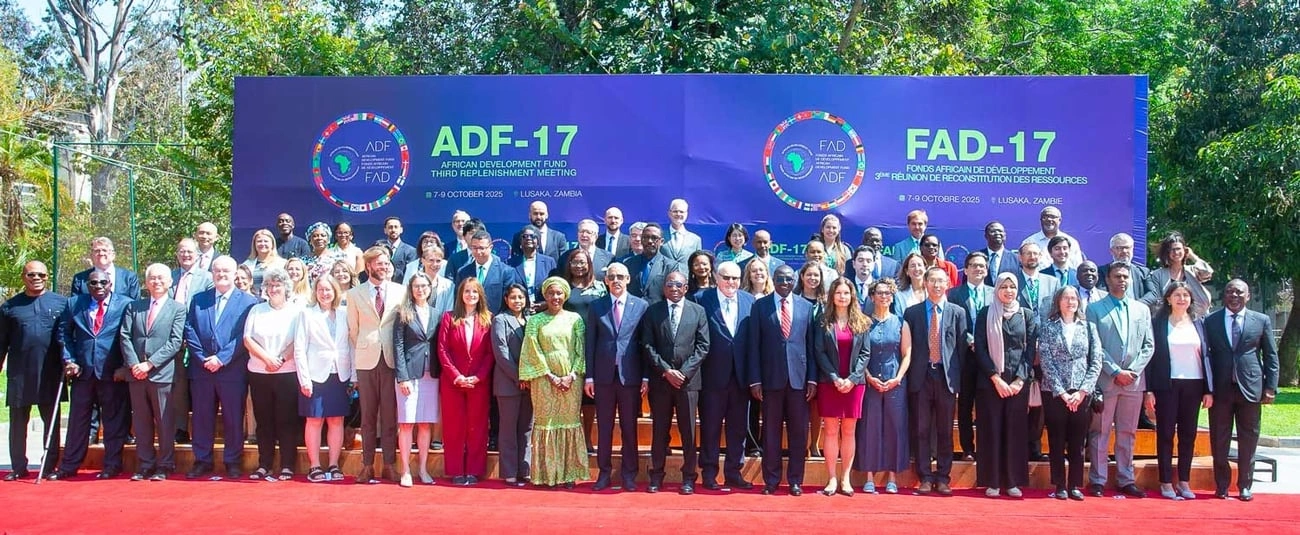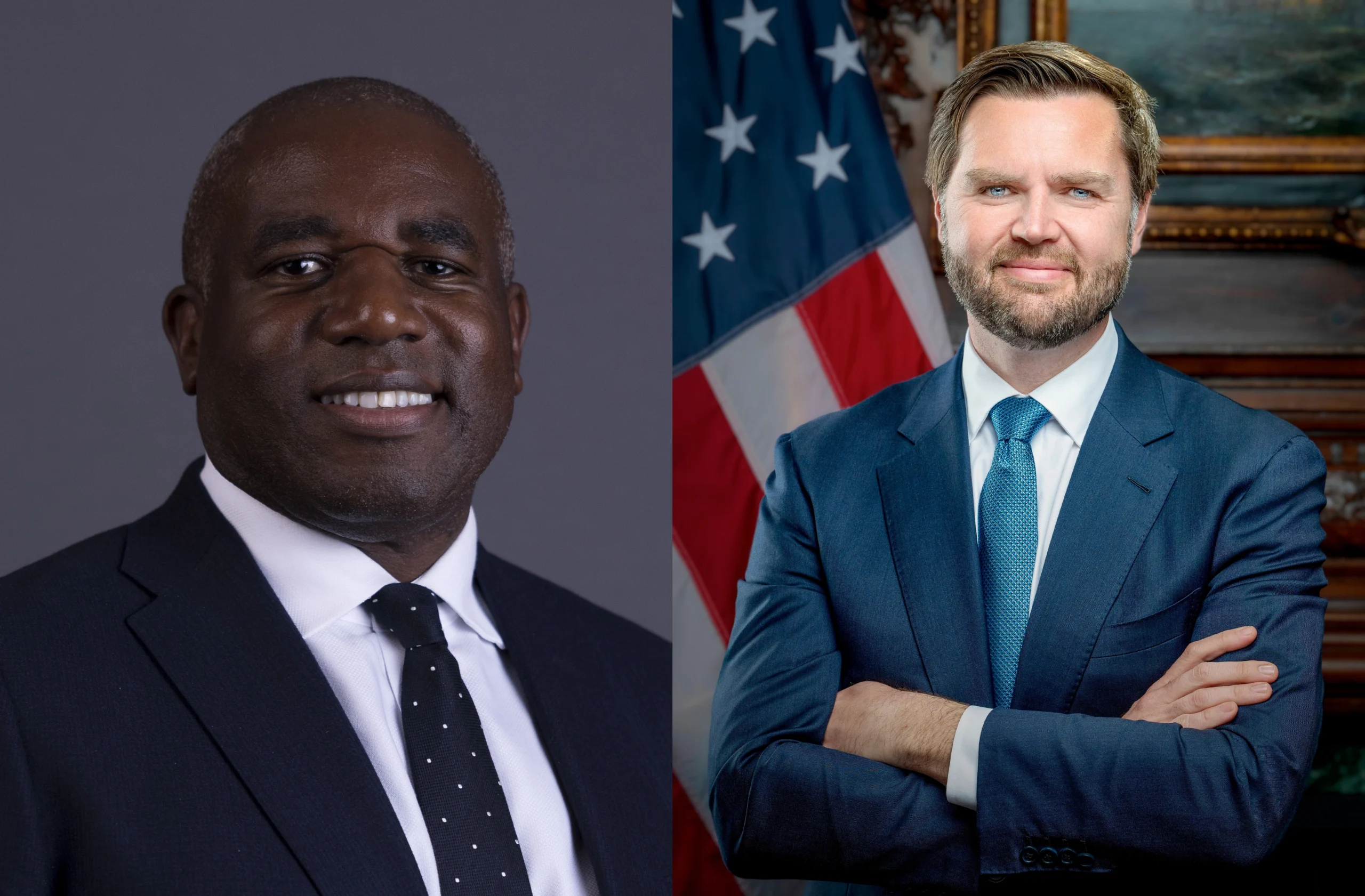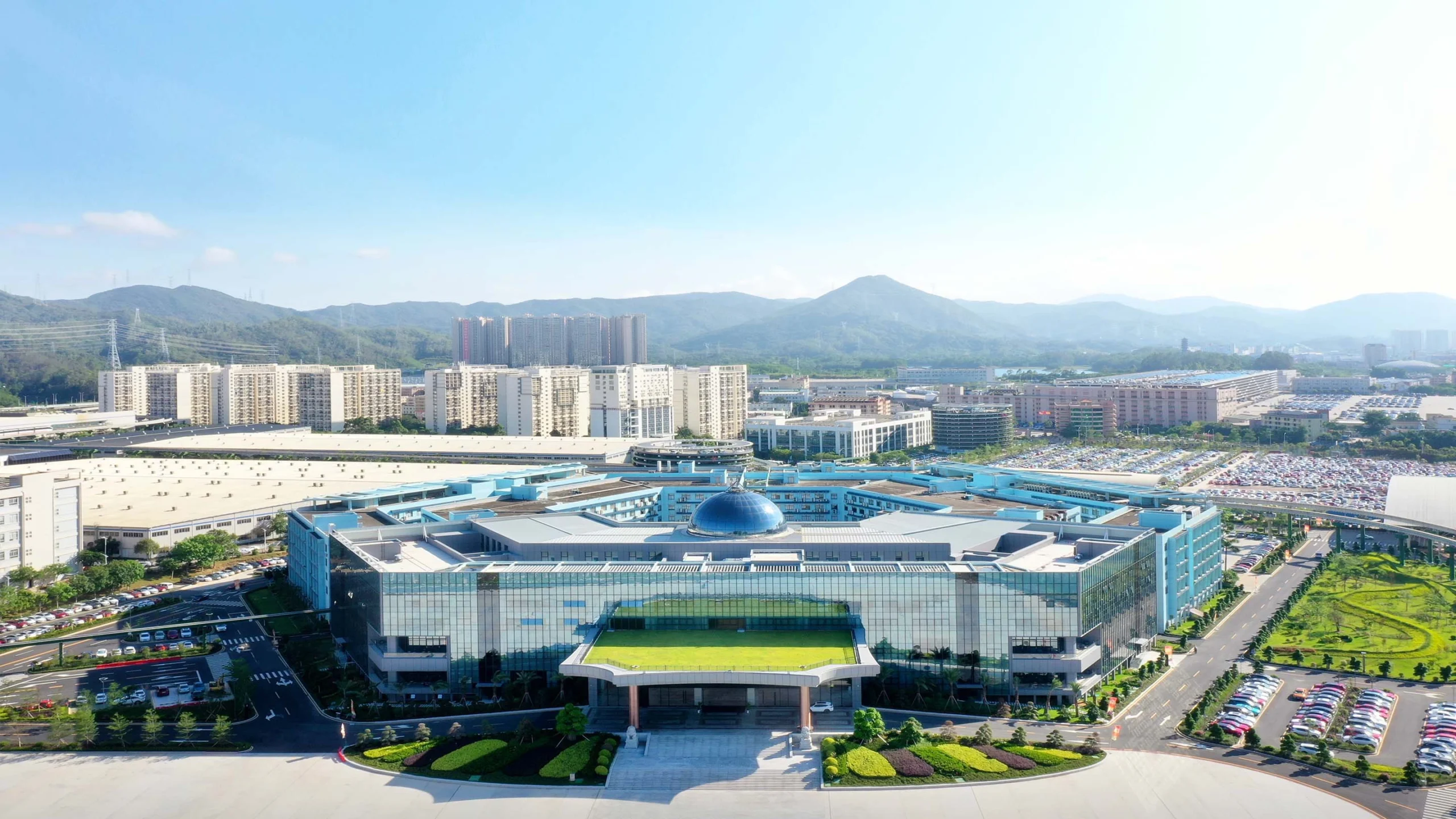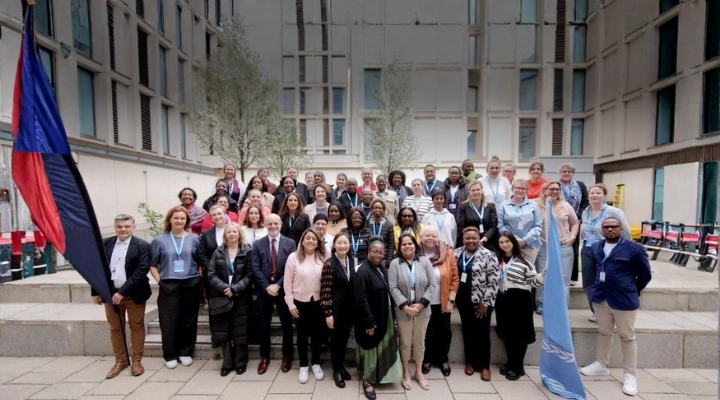UK to host African Development Fund summit as Africa pushes for food self-sufficiency

John E. Kaye
- Published
- News

As the UK prepares to host a major African Development Fund summit, new projects in Zambia and calls for farmer-led resilience are highlighting how development finance is reshaping Africa’s future
The UK will host the African Development Fund’s 17th Replenishment pledging session in December, reaffirming its backing for Africa’s drive toward food security, education, and economic resilience.
The announcement comes as the African Development Bank Group (AfDB) highlights rapid progress in Zambia and renewed calls across the continent to transform farmers from recipients of food aid into providers.
The UK’s Minister of State for Development and Africa, Baroness Jenny Chapman, said London’s leadership role underscored “our collective commitment to Africa’s growth and development”.
Baroness Chapman confirmed that Britain intends to make a strong pledge and urged all partners to “consider ambitious contributions” to the Fund’s 2026–2028 cycle.
“The replenishment is an opportunity to signal our collective commitment to Africa’s growth and development, its institutions, and to innovative, modern approaches to development finance in a challenging global environment,” she added.
The ADF — the Bank’s concessional financing window for 37 low-income countries — has provided more than $45 billion since its creation in 1972, supporting infrastructure, agriculture, and social development projects across Africa.
AfDB President Dr Sidi Ould Tah welcomed the decision, adding: “The African Development Bank Group welcomes United Kingdom’s announcement to host the African Development Fund’s 17th replenishment pledging session. It is a rallying call for a strong ADF-17 replenishment, which is both an investment in Africa’s development as well as in shared global prosperity.”
The London session will follow technical meetings held this month in Lusaka, Zambia, where ADF deputies reviewed progress on flagship projects and toured two major sites — the Nitrogen Chemicals of Zambia fertilizer blending plant in Kafue and upgraded facilities at the University of Zambia in Lusaka.
Zambia’s Agriculture Minister Reuben Mtolo Phiri described the Bank as “a critical ally”, saying ADF support had helped the country shift “from drought to surplus”.
“This achievement represents a significant leap forward in our capacity to meet the fertilizer requirements of the Zambian farming community,” he said. “Beyond serving our domestic needs, Nitrogen Chemicals of Zambia is positioning itself to penetrate export markets between 2025 and 2030, thereby contributing to Zambia’s role as a competitive player in the regional fertilizer industry.”
Through the Zambia Emergency Food Production Initiative, almost 5,900 farmers — more than half of them women — have received subsidised seed and fertiliser via the ZIAMIS digital platform, with 9,000 farmers expected to benefit this season from $35 million in financing. A further $1.3 million in ADF funding is cutting fertiliser costs by an estimated 40 per cent.
At the University of Zambia, Vice-Chancellor Professor Mundia Muya said ADF investment had modernised lecture theatres and laboratories.
Technology and Science Minister Felix Chipota Mutati linked the improvements directly to social stability. He said: “When you are being lectured in a conducive environment, even your brain power becomes transformative.
“When you do that, you create peace in society. You create harmony. So, it’s not just about the investment — it’s anchoring peace and democracy through the transformation of Africa.”
Akin-Olugbade said the programme formed part of a continent-wide initiative to reach 20 million farmers and produce 37 million tons of food, describing it as “a foundation for a more resilient, private-sector-driven agricultural system”.
The AfDB’s wider message was reinforced days earlier at the Africa Resilience Forum 2025 in Abidjan, where agricultural leaders urged governments to give farmers a central role in policy.
Roland Fomundam, CEO of Greenhouse Ventures in Cameroon, told delegates: “Without peace, there can be no development. But without food, there is no peace. It’s time to involve farmers in discussions on agriculture.”
Beth Bechdol, Deputy Director-General of the UN Food and Agriculture Organization, added: “Farmers are the private sector. They invest; they find solutions. We need to do better together. If we want to have a better impact on our populations, we need new matrices — for example, knowing how much we’ve improved producers’ incomes over a period of time.”
The Abidjan forum and the Lusaka meetings form part of the same AfDB agenda to finance peace, strengthen food systems, and deliver the infrastructure that underpins stability.
READ MORE: ‘Mergers and partnerships drive Africa’s mining boom – but experts warn on long-term resilience’. Industry leaders at African Mining Week 2025 warned that while mergers and acquisitions are reshaping Africa’s mining sector, long-term resilience, stronger legal safeguards, and social responsibility will be vital to sustain growth across the continent’s resource economies.
Do you have news to share or expertise to contribute? The European welcomes insights from business leaders and sector specialists. Get in touch with our editorial team to find out more.
Main image: ADBG
RECENT ARTICLES
-
 Meet the AI-powered robot that can sort, load and run your laundry on its own
Meet the AI-powered robot that can sort, load and run your laundry on its own -
 Wingsuit skydivers blast through world’s tallest hotel at 124mph in Dubai stunt
Wingsuit skydivers blast through world’s tallest hotel at 124mph in Dubai stunt -
 Centrum Air to launch first European route with Tashkent–Frankfurt flights
Centrum Air to launch first European route with Tashkent–Frankfurt flights -
 UK organisations still falling short on GDPR compliance, benchmark report finds
UK organisations still falling short on GDPR compliance, benchmark report finds -
 Stanley Johnson appears on Ugandan national television during visit highlighting wildlife and conservation ties
Stanley Johnson appears on Ugandan national television during visit highlighting wildlife and conservation ties -
 Anniversary marks first civilian voyage to Antarctica 60 years ago
Anniversary marks first civilian voyage to Antarctica 60 years ago -
 Etihad ranked world’s safest airline for 2026
Etihad ranked world’s safest airline for 2026 -
 Read it here: Asset Management Matters — new supplement out now
Read it here: Asset Management Matters — new supplement out now -
 Breakthroughs that change how we understand health, biology and risk: the new Science Matters supplement is out now
Breakthroughs that change how we understand health, biology and risk: the new Science Matters supplement is out now -
 The new Residence & Citizenship Planning supplement: out now
The new Residence & Citizenship Planning supplement: out now -
 Prague named Europe’s top student city in new comparative study
Prague named Europe’s top student city in new comparative study -
 BGG expands production footprint and backs microalgae as social media drives unprecedented boom in natural wellness
BGG expands production footprint and backs microalgae as social media drives unprecedented boom in natural wellness -
 The European Winter 2026 edition - out now
The European Winter 2026 edition - out now -
 Parliament invites cyber experts to give evidence on new UK cyber security bill
Parliament invites cyber experts to give evidence on new UK cyber security bill -
 EU sustainability rules drive digital compliance push in Uzbekistan ahead of export change
EU sustainability rules drive digital compliance push in Uzbekistan ahead of export change -
 AI boom triggers new wave of data-centre investment across Europe
AI boom triggers new wave of data-centre investment across Europe -
 Lammy travels to Washington as UK joins America’s 250th anniversary programme
Lammy travels to Washington as UK joins America’s 250th anniversary programme -
 China’s BYD overtakes Tesla as world’s largest electric car seller
China’s BYD overtakes Tesla as world’s largest electric car seller -
 FTSE 100 posts strongest annual gain since 2009 as London market faces IPO test
FTSE 100 posts strongest annual gain since 2009 as London market faces IPO test -
 Five of the biggest New Year’s Eve fireworks happening tonight — and where to watch them
Five of the biggest New Year’s Eve fireworks happening tonight — and where to watch them -
 UK education group signs agreement to operate UN training centre network hub
UK education group signs agreement to operate UN training centre network hub -
 Cornwall project to open new UK test airspace for drones and autonomous aircraft
Cornwall project to open new UK test airspace for drones and autonomous aircraft -
 Birding tourism market set for rapid growth through 2032, report finds
Birding tourism market set for rapid growth through 2032, report finds -
 Luxury travel market set to more than double by 2035 as older, wealthier travellers drive demand
Luxury travel market set to more than double by 2035 as older, wealthier travellers drive demand -
 UK and South Korea finalise upgraded free trade agreement
UK and South Korea finalise upgraded free trade agreement



























